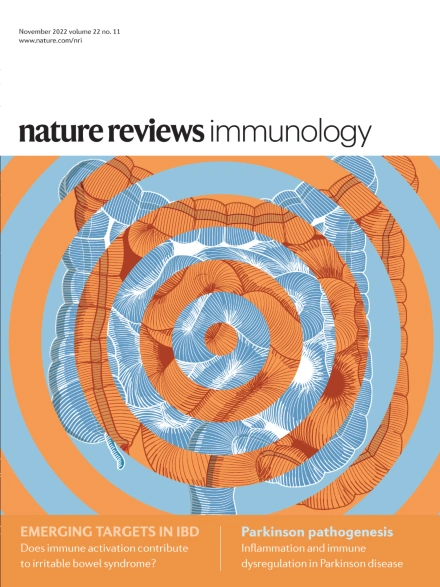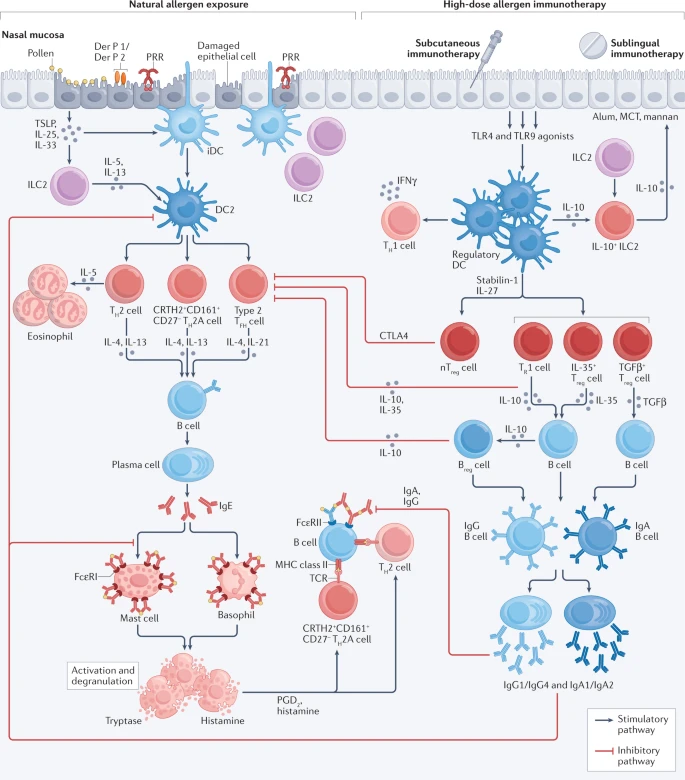Durham SR, Shamji MH. Allergen immunotherapy: past, present and future. Nat Rev Immunol. 2022 Oct 17:1–12. doi: 10.1038/s41577-022-00786-1. Epub ahead of print.
Abstract
Allergen immunotherapy is a form of therapeutic vaccination for established IgE-mediated hypersensitivity to common allergen sources such as pollens, house dust mites and the venom of stinging insects. The classical protocol, introduced in 1911, involves repeated subcutaneous injection of increasing amounts of allergen extract, followed by maintenance injections over a period of 3 years, achieving a form of allergen-specific tolerance that provides clinical benefit for years after its discontinuation. More recently, administration through the sublingual route has emerged as an effective, safe alternative.
Oral immunotherapy for peanut allergy induces effective 'desensitization' but not long-term tolerance. Research and clinical trials over the past few decades have elucidated the mechanisms underlying immunotherapy-induced tolerance, involving a reduction of allergen-specific T helper 2 (TH2) cells, an induction of regulatory T and B cells, and production of IgG and IgA 'blocking' antibodies. To better harness these mechanisms, novel strategies are being explored to achieve safer, effective, more convenient regimens and more durable long-term tolerance; these include alternative routes for current immunotherapy approaches, novel adjuvants, use of recombinant allergens (including hypoallergenic variants) and combination of allergens with immune modifiers or monoclonal antibodies targeting the TH2 cell pathway.

No comments:
Post a Comment